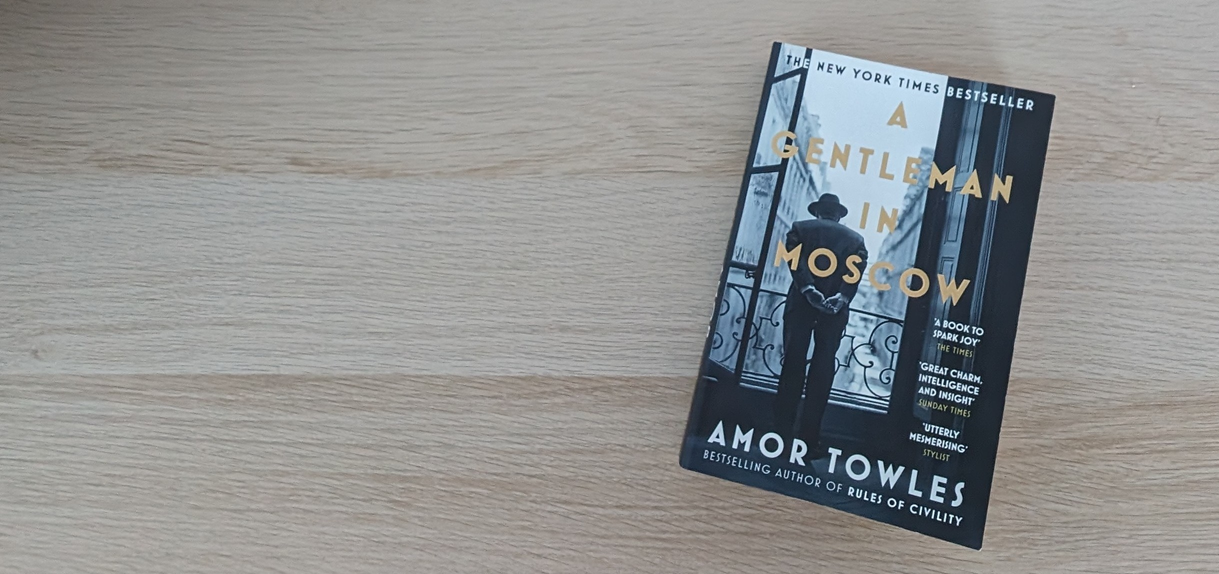Amor Towles’ 2016 novel A Gentleman in Moscow is not a book I’d typically pick up. In fact, standing in the bookstore perusing the shelves, there was nothing in either the title or the cover that appealed to me, and yet without knowing a thing about the book, pick it up is exactly what I did. To this day I couldn’t tell you why, but I’m grateful I did as it’s now one of my favourite reads.
Beginning in 1922 during the Russian Revolution, the novel follows the life of Count Alexander Ilyich Rostov who, as a much reviled Former Person, is sentenced to house arrest within the famed Metropol Hotel, saved from the firing squad only by a pro-Revolutionary poem attributed to his hand. The confinement of the main character within the walls of a hotel, as majestic and elegant as the Metropol may be, hardly suggests a good start to a novel of almost 500 pages, for a story worth reading be constructed within such limited bounds?
And yet that is precisely what Towles does. Although the novel is technically a work of historical fiction set in a real place full of vivid detail, it is the fictional characters we encounter who live and work through the post-revolutionary events, which make this novel worth reading.
The dry yet optimistic tone is a stark contrast to the events that take place in Russia as she navigates revolution and reformation, a world war, and nuclear armament. One can’t help but root for the Count as he insists “that if one does not master one’s circumstances, one is bound to be mastered by them.”
Through the transition of the Count from gentleman of leisure to the headwaiter of the famed Boyarsky restaurant within the hotel, we are led on a journey of exploration to find what it means to choose a purpose in life.
The novel also speaks to contemplating others closely, indeed the Count directs that people “deserve not only our consideration but our reconsideration”. The events of the times – and “let us concede, that the early 1930s in Russia were unkind” – are treated as they would have been viewed by the people living through them, not with the backwards looking judgement of our modern era. The individual acts of the characters, who step outside their stereotypes and our expectations, make them so very human and so very relatable. It is the snobby actress who learns the value of humility and holds no grudge. It is the colonel who comes to Rostov’s aid despite being responsible for keeping him under house arrest. It is the friends who make the best of the little privileges they have to enjoy their time together, in spite of their circumstances. It is not the life we are given that matters, it is what we choose to do with it.
To me, the book abounds with the optimism that every life is worth living, and one can never truly know how it will turn out except by living it. An exceptional and surprising read.
